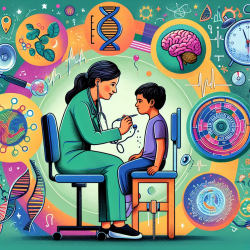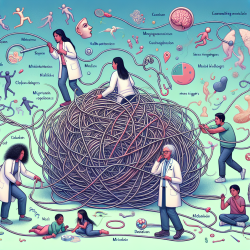Introduction
The COVID-19 pandemic has significantly altered our daily routines, impacting sleep, diet, physical activity (PA), and stress levels. The study "Sleep, Diet, Physical Activity, and Stress during the COVID-19 Pandemic: A Qualitative Analysis" provides insights into these changes and offers a valuable opportunity for practitioners to enhance their skills by understanding and implementing the findings.
Key Findings
The study conducted semi-structured interviews with 185 participants, revealing four primary themes: sleep, diet, PA, and stress. Here are some key findings:
- Sleep: 36% of participants reported poorer sleep quality, with 12% experiencing increased vivid dreams and nightmares. Stress was a major factor affecting sleep.
- Diet: While some participants improved their diet, others reported increased snacking and weight gain. Women were more likely to report healthier eating habits.
- Physical Activity: PA decreased for 52% of participants, although 33% reported an increase. The pandemic's restrictions were a significant barrier to maintaining PA.
- Stress: Stress levels were elevated in 79% of participants, often linked to changes in health behaviors. Women reported higher stress levels compared to men.
Implications for Practitioners
Understanding these changes can help practitioners develop strategies to support children and families in managing stress and promoting positive health behaviors. Here are some actionable steps:
- Stress Management: Implement stress-reduction techniques such as mindfulness and relaxation exercises to improve sleep and overall well-being.
- Promote Healthy Eating: Encourage families to cook at home and make healthier food choices, emphasizing the importance of nutrition in managing stress.
- Encourage Physical Activity: Develop creative ways to incorporate PA into daily routines, even in restricted environments.
- Monitor Sleep Patterns: Educate families on the importance of good sleep hygiene and its impact on stress and health.
Encouraging Further Research
This study highlights the need for further research into the interrelationships between stress and health behaviors. Practitioners can contribute by documenting their observations and outcomes, helping to build a comprehensive understanding of these dynamics.
Conclusion
The COVID-19 pandemic has provided a unique opportunity to understand how stress affects health behaviors. By leveraging these insights, practitioners can create better outcomes for children and families. To read the original research paper, please follow this link: Sleep, Diet, Physical Activity, and Stress during the COVID-19 Pandemic: A Qualitative Analysis.










